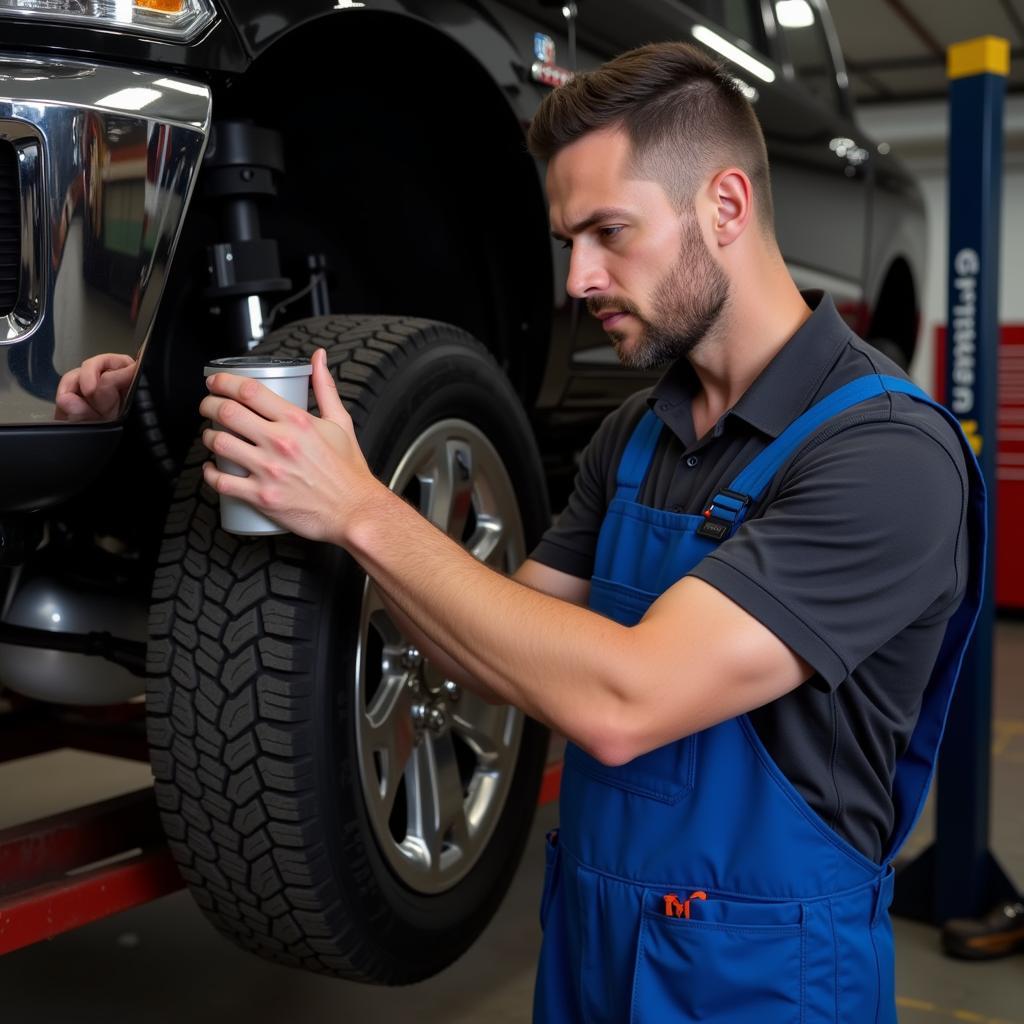The brake system warning light glowing on your dashboard can be unsettling. In your 2009 Toyota Corolla, this light could signal several issues, ranging from a simple fix to a more serious problem. This article will guide you through understanding why your brake warning light is on and what steps you can take.
Understanding Your Corolla’s Brake Warning Light
Your 2009 Toyota Corolla’s brake system warning light is designed to alert you to potential problems within the braking system. When the light illuminates, it signifies that a component within this crucial system may be malfunctioning. Ignoring this warning could compromise your safety and lead to more costly repairs down the line.
Common Reasons Your Brake System Warning Light is On
Here are the most common reasons for the brake system warning light to illuminate in a 2009 Toyota Corolla:
- Low Brake Fluid: This is the most common culprit. Brake fluid is essential for transmitting force from your foot to the brake pads, and a leak or low level can trigger the warning light.
- Worn Brake Pads: Brake pads naturally wear down over time. When they reach a certain thickness, the brake pad wear sensor will trigger the warning light as an indication for replacement.
- Faulty Brake Light Switch: Your brake lights and brake system warning light are often connected to the same switch. A malfunctioning brake light switch might activate the warning light even if your brake system is functioning correctly.
- ABS Issue: While less common, a problem with your Anti-lock Braking System (ABS) can trigger the warning light. This could be due to a faulty sensor or a problem with the ABS control module.
Troubleshooting Your Brake System Warning Light
Here’s a step-by-step guide to help you troubleshoot the issue:
- Check Your Brake Fluid Level:
- Locate the brake fluid reservoir under the hood (refer to your owner’s manual if unsure).
- Check the fluid level. It should be between the “MIN” and “MAX” lines.
- If the level is low, add the correct DOT 3 or DOT 4 brake fluid (as recommended by your owner’s manual) until it reaches the “MAX” line.
- Inspect Your Brake Lights:
- Have a friend or family member press the brake pedal while you check if all brake lights are working correctly.
- If one or more brake lights are out, it might indicate a faulty brake light switch or bulb.
When to Seek Professional Help
While some issues can be addressed with simple DIY fixes, it’s generally recommended to seek professional help if:
- The warning light remains on after adding brake fluid and checking the brake lights.
- You suspect a brake fluid leak (look for puddles of fluid under your car).
- Your brake pedal feels spongy or goes all the way to the floor.
- You hear unusual noises when applying the brakes (grinding, squealing).
Remote Diagnostics and Software Solutions
In some cases, the problem with your Toyota Corolla’s brake system might be electronic rather than mechanical. Modern vehicles are equipped with complex electronic control units (ECUs) that manage various systems, including the braking system.
Remote diagnostics and software solutions can be incredibly beneficial in such scenarios. These services allow expert technicians to remotely access your vehicle’s computer, diagnose the problem, and even install software updates or reprogram modules – all without you needing to visit a repair shop.
“Remote diagnostics offer a convenient and efficient way to diagnose complex electronic issues in vehicles like the 2009 Toyota Corolla,” says John Miller, a certified automotive electrician with over 15 years of experience. “This technology can save car owners time and money by identifying problems quickly and accurately.”
Conclusion
Addressing the brake system warning light in your 2009 Toyota Corolla is crucial for your safety and the longevity of your vehicle. While some issues are simple to fix, others require professional attention. If you’re unsure about any aspect of diagnosing or repairing your car’s braking system, don’t hesitate to seek help from a qualified mechanic. Remember, a well-maintained brake system is paramount for your safety on the road.

